International mobility at the University of Rome TOR VERGATA, Italy under the ISDEGO project – Sustainable Urban Development Goals in Transport Bachelor Degree, Erasmus+ program
From November 10 to 14, representatives of NTU took part in international mobility under the ISDEGO project – Sustainable Urban Development Goals in Transport Bachelor Degree, Erasmus+ program at the University of Rome TOR VERGATA, Italy.

Eighteen people from universities in Ukraine and Moldova participated in the mobility internship. NTU was represented by:
– Vitalii KHARUTA – Vice-Rector for Academic Affairs and International Relations,
– Viktoriya LEBID – Acting Dean of the Faculty of Transport and Information Technologies,
– Olga KUNYTSKA – Professor of the Department of Transport Systems and Road Safety
– Stanislav POPOV – Associate Professor of the Department of Transport Systems and Road Safety.
From the University of Rome, the participants were welcomed by Professor Antonio COMI, from the Department of Enterprise Engineering “Mario Lucertini” University of Rome Tor Vergata.
The purpose of the mobility was to study European experience in implementing Sustainable Development Goals in the training of bachelor’s degree students in transport. The importance of the internship lay in the further implementation of the ISDEGO project at a level acceptable to the European Education and Culture Executive Agency (EACEA) for the future development of higher education in Ukraine, directly at the National Transport University.
Internship program
During the mobility program, representatives of the National Transport University were involved in the following activities:
– Visit to the port of Civitavecchia
Civitavecchia is one of Italy’s key port cities, located approximately 80 km from Rome. The port is an important transport hub, receiving about 500 passenger and cargo ships annually and having an extensive infrastructure, where the distance between berths and transport terminals can reach 5 km. As part of their technical visit, ISDEGO interns visited the Rome Cruise Terminal (RCT), the central hub for cruise ship services. During the tour, the delegation learned about the organization of passenger flows, the logistics of moving to the docks, and the specifics of the terminal’s operation. In addition, the participants visited the cargo sector of the port, where they had the opportunity to observe the operation of lifting and transport equipment, container handling processes, and the structure of port docks, which ensure the effective interaction of various types of maritime logistics.
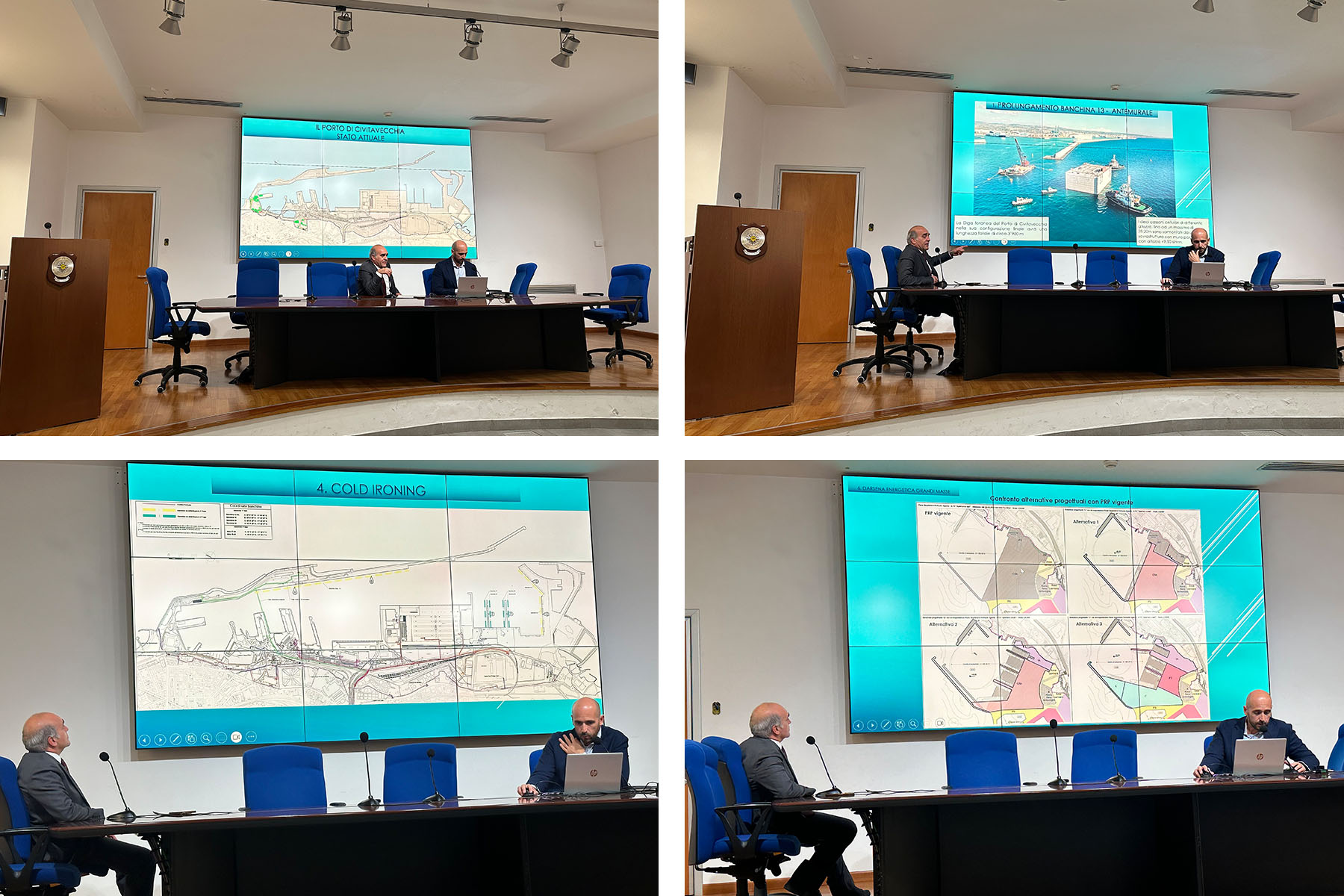
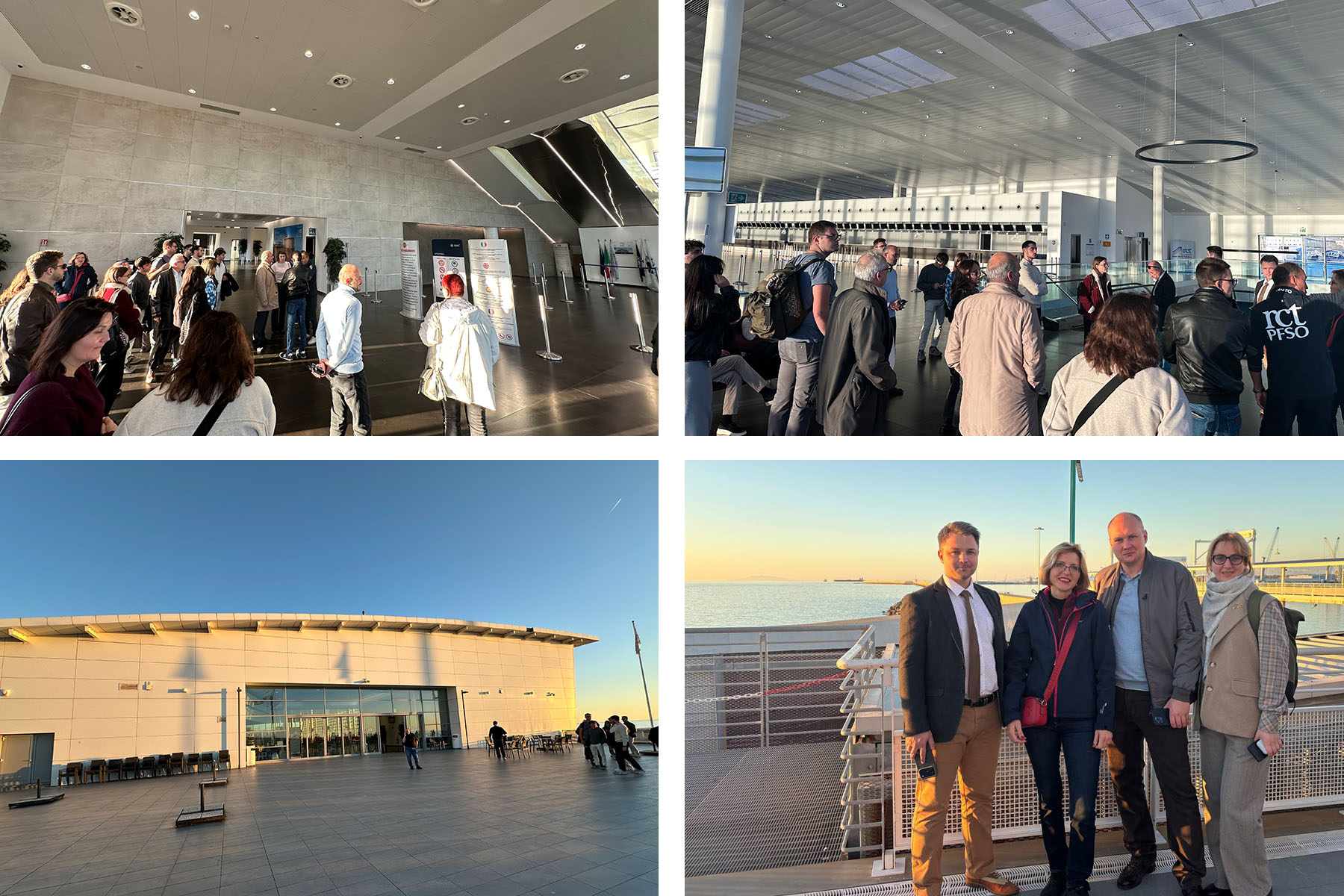
– Visit to the Rome Metro Line C depot
Line C is the most modern branch of the Rome Metro, connecting the south-eastern districts of the city with the historic centre and distinguished by its use of fully automated driverless trains. It is the first metro line in Rome to operate without drivers, which increases its efficiency, regularity, and safety. The trainees visited the depot and the Central Operations Control Center, key elements of the infrastructure where train monitoring, coordination, and maintenance are carried out. Here, video surveillance, telemetry, and digital communication systems are used to monitor all trains in real time, ensuring the stability of the transport process and passenger safety.
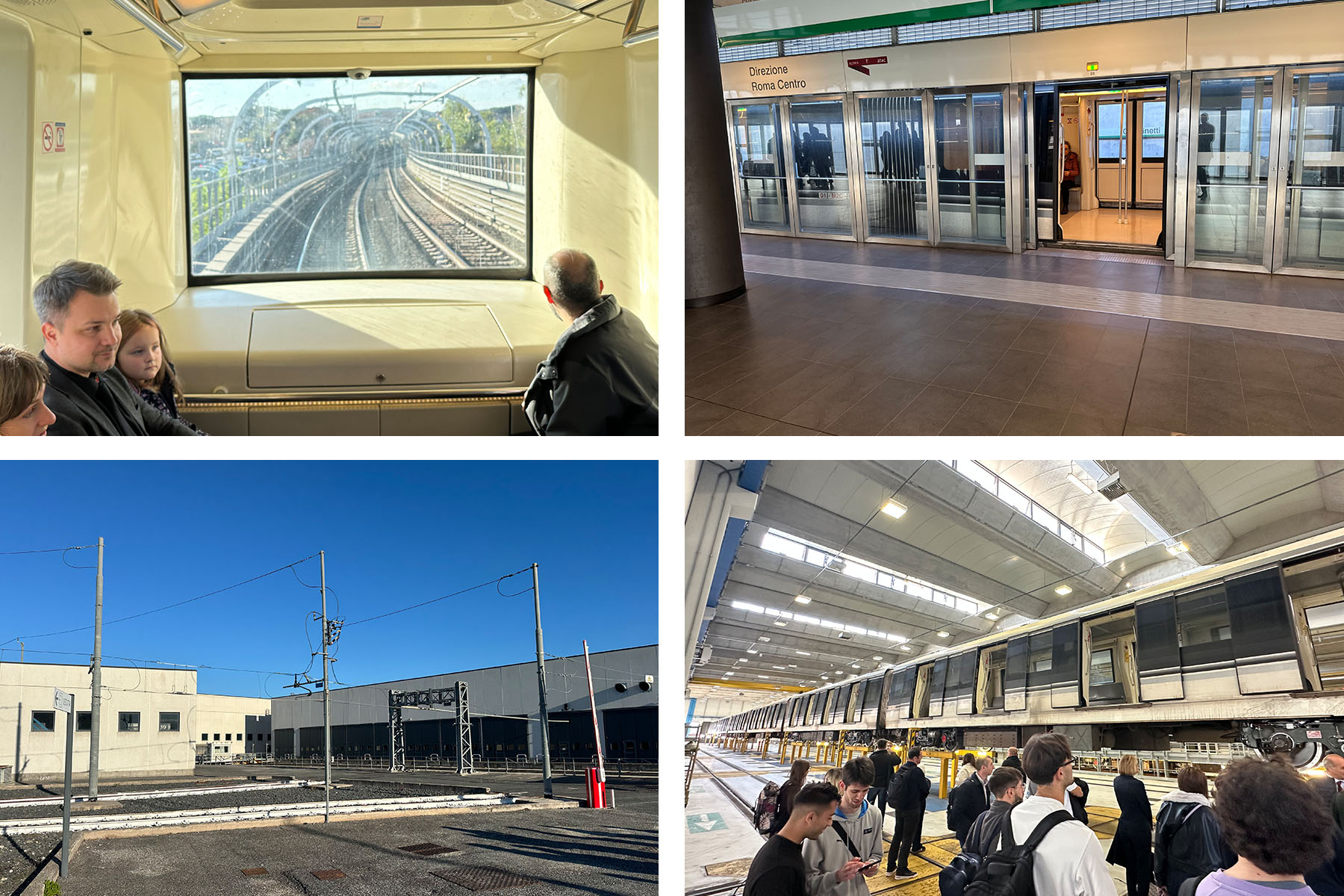
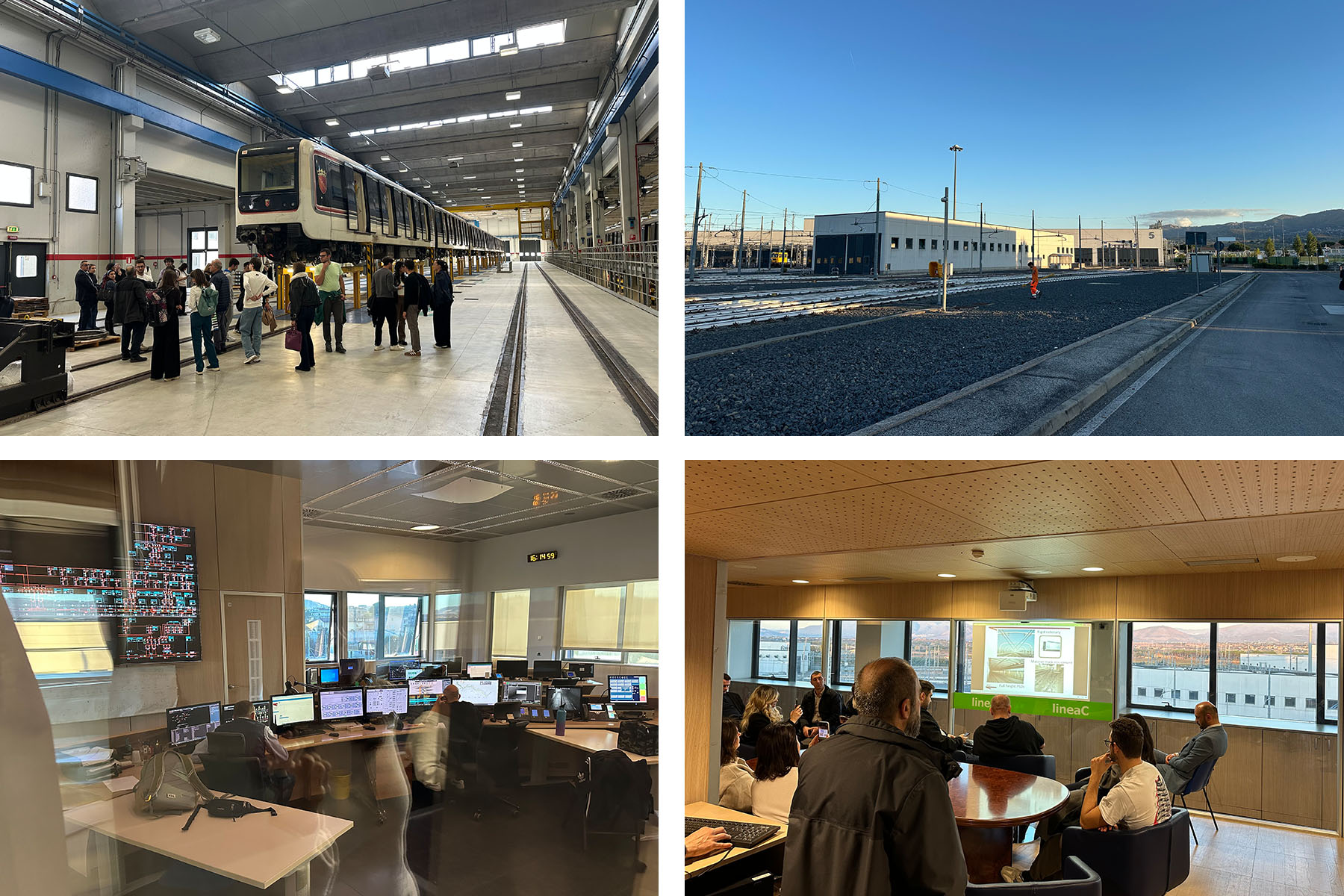
– Lectures and meetings
During the internship, a series of lectures and working meetings were held to exchange experiences and deepen academic cooperation. In particular, lectures were given on the use of PTV Visum Suite, as well as on innovative proactive road safety models based on digital mapping and artificial intelligence. In addition, meetings were held on the development of internationalization, discussion of joint initiatives, and identification of potential areas for further partnership activities.
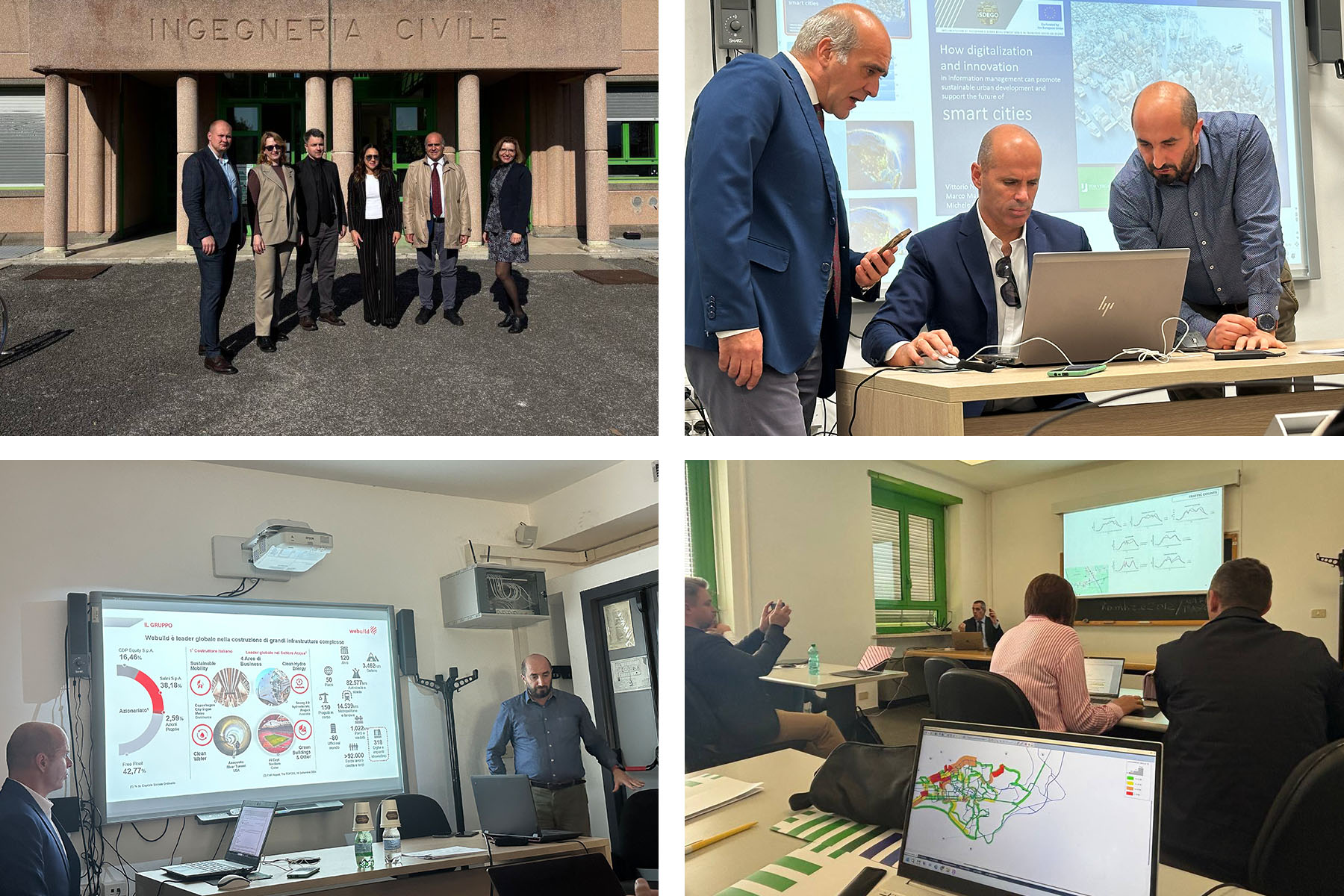
As a result, international mobility within the ISDEGO project became an important step in strengthening academic partnerships and deepening the integration of European approaches to training transport specialists. Thanks to a combination of technical visits, lectures, and professional meetings, participants gained valuable practical and methodological experience that will contribute to the qualitative renewal of educational programs and the implementation of Sustainable Development Goals in bachelor’s degree training.
The results of the internship will strengthen the potential of the National Transport University in the implementation of the ISDEGO project and consolidate its position in the international educational space, creating a basis for further cooperation and expansion of international initiatives.


























